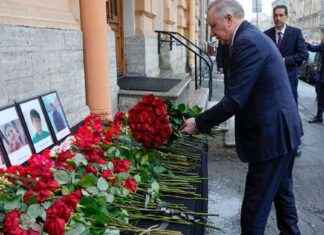Consumer advocates are complaining about horrendous price increases for district heating and are calling for clarification. Traffic light politicians are now also demanding an examination by the Federal Cartel Office. A district heating market expert, on the other hand, is not very surprised by the prices.
In view of the sometimes drastically increased district heating prices, politicians from the three governing parties are demanding that the Federal Cartel Office intervene. The authority must also ensure that competition is maintained in district heating. “For this reason, a new sector inquiry should be carried out,” said the economic policy spokesman for the FDP in the Bundestag, Reinhard Houben, to the “Handelsblatt”. The providers should not jeopardize their good reputation with “high and non-transparent prices”.
SPD energy politician Nina Scheer also sees a need for action. “If there are indications of a non-legal, lack of price transparency, it must be investigated,” Scheer told the business newspaper. The Greens economic politician Dieter Janecek expressed the expectation that the suppliers would react to the falling wholesale market prices of the past few weeks and pass these cost reductions on to the households “promptly”. “If this does not happen, the antitrust authorities should take action.”
The coalition politicians are reacting to information from the Federation of Consumer Organizations. Its boss Ramona Pop attested to the district heating suppliers’ considerable shortcomings in pricing. “The consumer advice centers report horrendous additional payments for 2021, some district heating customers pay twice as much, and correspondingly increased deductions in 2022.” Studies by their association have also shown “incredible” price differences. Tenants could not defend themselves against excessive price increases, nor could they avoid them, Pop said.
“If a district heating supplier charges very high prices, that is not per se an indication of exploiting its monopoly position,” Sebastian Gulbis, partner at the energy consulting company Enervis, points out to ntv.de. “District heating suppliers have a very different generation mix in a Germany-wide comparison. In the current market environment, generation with natural gas, coal or even geothermal energy naturally leads to distortions between different district heating suppliers.” In addition, the suppliers used different formulas to calculate the district heating prices. According to Gulbis, the market situation of the past 24 months and the resulting divergence in prices were even to be expected.
In the eyes of the district heating market expert, however, it should be checked to what extent the district heating suppliers meet their transparency obligations. The nationwide district heating market is “largely non-transparent and isolated”. However, a lengthy sector check by the antitrust authorities does not help in the current situation. However, regular examinations could have a “disciplining effect”.
According to the Federal Association of Energy and Water Management, around every seventh apartment was heated with district heating last year. A price brake is also planned for district heating customers, the guaranteed gross price should be 9.5 cents.






